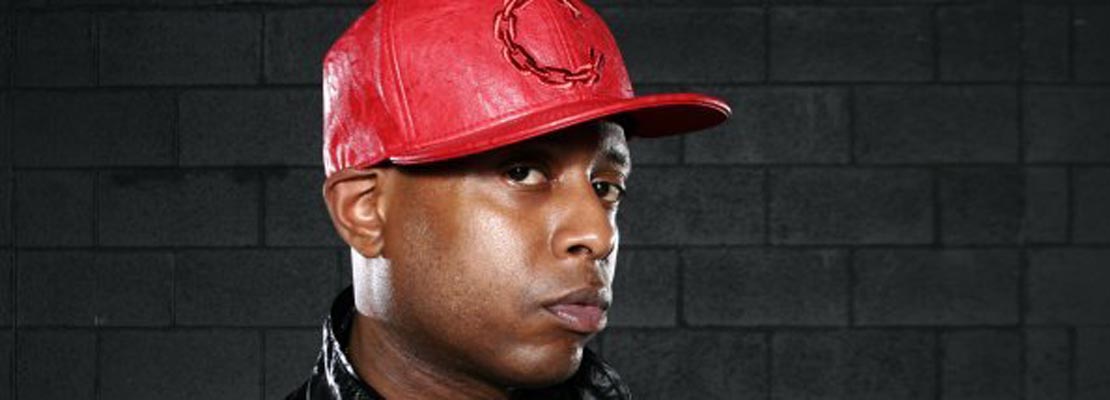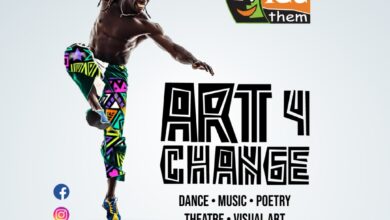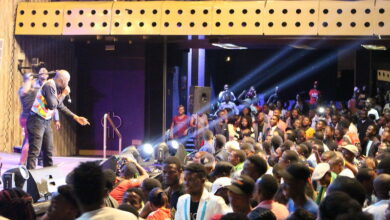That One Time When I Was Atheist, And The Influence Of Malcolm X

So I’m writing a book, an autobiography. I don’t have a book deal or
title, and I haven’t edited it, but I wanted to begin sharing some of
the excerpts. Enjoy!
That One Time When I Was Atheist, and the Infuence of Malcolm X.
The greatest gift my parents gave me, besides life, was the ability to
see beneath the surface. They taught me to not accept things for what
they were, but to find out what they could be. Perry and Brenda Greene
achieved this by giving my brother Jamal and I strong African names,
and having African cultural influences all thru the house. They took
us to the library and to museums every weekend they possibly could.
They encouraged a respect for culture and an active, constant search
for knowledge. This came back to bite them in the ass when I got to
high school. When I cut class in Roy H. Mann Junior High School, it
was because I was sick of being the teacher’s pet. Being a nerd didn’t
earn me any friends and I did not realize at that young age that nerds
grow up to run the world. When I cut my Brooklyn Tech classes, the
root of it was the confusion of being at a school that was supposedly
preparing me for a career in science and engineering, when hip hop
music was increasingly becoming my first love.
Brooklyn Tech had too many students to keep track of them all. I
hung out with a large group of kids, and we all cut school daily. At
the time, I thought I was running with the coolest kids on the planet.
Many years later, speaking to seniors at Brooklyn Tech as a community
“role model”, I was amused to find out the opposite was true. I
watched the faces of these high schoolers go from confusion to pity as
I recalled my glorious truant days. I came full circle that day to
realize I was really hanging out with the losers.
Even in truancy, my parents love of education and culture stuck
with me. There were days that we skipped school and went to the Museum
of Natural History, one of my favorite places in the city. Justin,
Sidda and I left school to see Reverend Al Sharpton speak in defense
of Tawana Brawley in front of City Hall. Sonny Carson, a legendary
black activist from Fort Greene Brooklyn, had a son named Lumumba
Carson who was a founder of the group X-Clan. X-Clan was the hip hop
part of a larger organization that Lumumba, professionally known as
Professor X, was a part of called Blackwatch. Blackwatch had strong
roots in the Brooklyn high schools, and the lead rapper from X-Clan,
Brother J, was a favorite of Justin and I. When Blackwatch did things
like organize a march to City Hall to protest the racially motivated
murder of a black man in Bensonhurst named Yusuf Hawkins, we cut
school to go to that as well. I missed 5 out of 9 months of school my
freshman year. But that year I also read Nigger by Dick Gregory, Soul
on Ice by Eldridge Cleaver and Pimp by Iceberg Slim. These books were
not given to me in school. I was educating myself.
When I was 14, I became an atheist. I don’t remember the exact
circumstance that made me say out loud that I do not believe in God,
but I do remember the series of events that got me there. Like most
black families in America, the faith of the Greenes was rooted in the
Christian Baptist tradition. However, we did not go to church every
Sunday. There was a pattern that my mother developed over the years,
that I would guess was a result of Christian guilt. Every Christmas,
she would begin to talk about how we really needed to spend more time
in church. By January, we she would begin to take my brother Jamal and
I to church on Sundays. By Easter, we were going every Sunday, and to
Sunday school as well. About a month after Easter the church spirit
began to leave my mother. Sundays did not seem to provide enough time
for worship and weekend activities. By the beginning of the summer, we
would not be in church on Sundays, but my mom would still drop us off
at Sunday school whenever she could, or she would make us listen to
some church program on the radio so she could feel like she got at
least some churchifying in. I don’t remember my father coming with us
to church unless it was a special occasion. When I asked him about it
years later, he explained that while he considered himself a
Christian, the energy of the church just wasn’t for him.
The energy of the church? I don’t think I was able to articulate
it as a child, but I think I felt the same way my father did. I didn’t
like the energy, and I didn’t like the answers I was getting to the
questions I asked. I first began my dissent in Sunday school. The
stories they told us from the Bible seemed no different than stories
of about Santa Claus and the Easter Bunny, which by 9 years old, I
knew to be fiction. One of the fundamental tenets of dogmatic
Christianity is the the Bible is God’s word, and God is infallible,
therefore the Bible is infallible. But that was not good enough for my
precocious mind. I needed the stories to make sense, and the only
answer I got was that if it was in the Bible, it must be true.
I began to think that the God that people believe in would ask
them for blind faith. For me, faith should be based on knowledge and
experience, not blindness or ignorance. Why was there even a need for
the term blind faith unless faith based on “seeing to believe” exists?
The more knowledgeable I am about hip hop, the more I have faith in it
to be a vehicle for the liberation of my people. The more knowledge
people have about religion, it’s origins and rituals, the better they
will be able to practice it. When your conversation ends at the Bible,
especially the King James version, you are doing yourself and your
faith a disservice. The word version itself implies that things have
been left out. How could an infallible truth live in a “version”
created by a European king?
By the time I was 12, I was sure about how I felt about the
church. I did not want to go, and I told my parents this. I was too
old for Sunday school, and I did not like having to dress up for
church. In Baptist churches, people seemed to dress like they were
going to actually meet Jesus himself. The perfumes and colognes were
in full effect. The hairdos, the hats, the dresses, the suits were all
on display. It seemed to me, even at a young age, that these people
were dressing up to impress each other, not for God. A child hears
whispers, and I heard them talk about each others outfits and personal
business. Another baptist tradition is a full day of church on Sunday.
We would get there by 9 am and not leave until 4 or 5. I didn’t
understand why we needed to dress up and be uncomfortable for so long.
The God they were asking me to believe in couldn’t have intended this.
“If God is all seeing and all knowing, then he’s seen me naked.
So why do we have to dress up to go to church?” I remember asking my
mom this at 9 years old. She replied,” We dress up to show respect to
the church and to God. We show up in our best clothes to show that we
honor God.” My reply? “I thought God don’t want us to care about
material items though.”
These were my selfish thoughts. I didn’t understand what
appearance had to do with respect. However, I was full of compassion
at a young age, and the world seemed to be in complete chaos. I had
watched the space shuttle Challenger explode on live TV. New York City
was the crime capital of the country in the mid 1980’s. The cold war
was at it’s climax, and the news was talking about the end of the
world by nuclear fallout every night. I didn’t understand how a loving
God could allow these things to happen. I started to think that maybe
this “God” with his crazy stories and rituals, was the most active
figment of our imagination.
As a Christian, my mom began to worry about were my thoughts on
religion were headed. As an academic, she knew that she could not
control my beliefs, she could only provide me with options. She set
out to provide me with the only options she knew, and she took me to
visit other Christian churches of different denominations. The only
one I remember was the Catholic church, because it felt like church
lite to me. Although the Catholic rituals were more solemn and
involved, it seemed as it required less of it’s followers collective
attention span. We would go to the Catholic church, listen and watch
quietly for 45 minutes, and leave, church quota filled. No long drawn
out singing (although I later came to have great appreciation for
gospel music), no testifying, no 3 hour sermons, and you could wear
what you wanted! I was Catholic for about 2 months.
As I approached puberty, my attention moved from God to girls and
my peers. I began to come into my own as a person and really establish
my own belief system, and naturally my thoughts became more selfish.
The stories in the Bible began to make less sense to my analytical
mind. A literal interpretation of the Bible was all anyone provided
for me, and at that young age I wasn’t grasping the concept of
allegory. The idea of creation being started by a big bang, while only
a theory, was a lot more plausible to me at 14 than the literal
interpretations of the Bible I was expected to believe. Religion was
battling science for my heart and mind, and science was winning. At
this age, I did not know the difference between religion and
spirituality. As far as I knew, they were one in the same.
Malcolm X brought me back to God. At 13 years old, El Hajj Malik
El Shabazz, also known as Malcolm X, became the greatest influence
over me other than my parents and my city. Most things a child takes
interest in are started from influences in the home. As African
Americans who came of age during the late 1960’s, Perry and Brenda
Greene supported a black nationalist, and eventually pan-African
lifestyle. They chose their children’s names, Talib Kweli Greene and
Jamal Kwame Greene from African name books. They sent us to and
African based school in Brooklyn called Weusi Shule; which curiously
enough had it’s name changed to Johnson Prepatory School and is now
more Christian centered than African centered. We celebrated Kwanzaa
with the same passion that we celebrated Christmas. There was African
and African American art throughout the house, and Black history was
considered to be world history. In our house, February was just
another month. I learned about people like Matthew Henson, Charles
Drew, Ida B. Wells, Sojourner Truth and Nat Turner all year round. Of
course, I also learned about Malcolm long before Spike decided to make
his film, X.
Hip Hop was having a huge affect on me during puberty, and the
hip hop of that time was very pro black. For a long time, up until
about the time Biggie came out, you had to have a song with a positive
or pro-black message on your album to be considered one of the greats.
It was mandatory. The references that hip hop was making to leaders
from our past like Malcolm X, combined what I learned about Malcolm at
home and the news that Spike Lee was directing a feature about
Malcolm’s life starring Denzel Washington created a perfect
revolutionary storm in my head. In what was a genius marketing move,
Spike Lee was selling “X” hats out of his 40 Acre and a Mule shop long
before the movie was finished. This shop was located exactly across
the street from my high school, Brooklyn Tech. That location would
later become the first Carol’s Daughter shop after Spike moved out of
the retail business. This was obviously a special corner of Fort Green
Brooklyn.
Along with 8 Ball jackets, Guess jumpers and Hi Tec boots, the
“X” baseball hat was very fashionable in 1989. Black kids were going
to school with kente cloth bookbags and t-shirts that read “It’s A
Black Thing, You Wouldn’t Understand.” Black pride was experiencing
it’s first American renaissance.
I read the Autobiography Of Malcolm X long before the movie came
out. The first thing that struck me was the rawness of the first half.
By this age, I was reading Donald Goines and Ice berg Slim novels, so
I wasn’t shocked by Malcolm’s behavior, but to know that this was a
real person who was now seen as a great leader was impressive. When
Malcolm goes from being a selfish hustler to realizing the vast
disparity between whites and blacks in America, it is convincing
because he does not seem to have any agenda but the truth at this
point.
Years later when I worked at Nkiru Books, we used to sell a
cassette of Malcolm X’s speeches called Make It Plain. That was the
perfect title, because the way Malcolm made things plain made it hard
to argue with. I had never read anything that talked about racism so
plainly and made so much sense on the matter until I read the
Autobiography. After reading about Malcolm’s ultimate spiritual
conversion towards the end of the book, I came to the conclusion that
if Malcolm was right about everything else, he must be right about
God. I did not decide to follow Islam at this time, but I decided that
God must be real for a man like Malcolm to exist.
Source: http://talibkweli.tumblr.com/post/31221724835/that-one-time-when-i-was-atheist-and-the-influence-of




